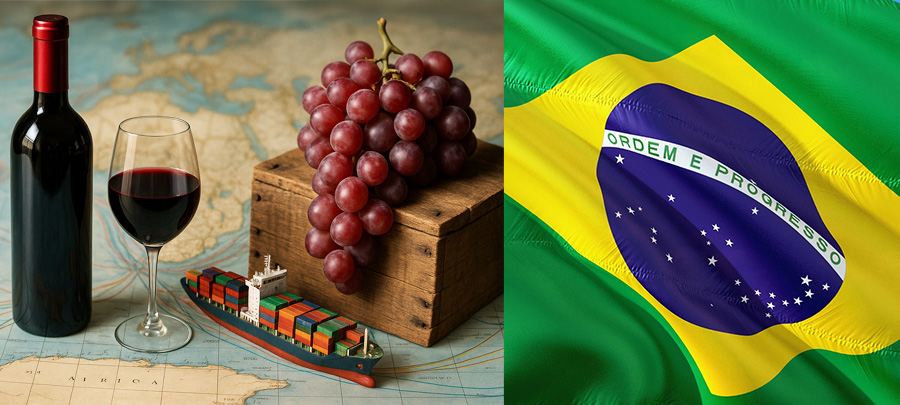

The long-discussed EU–Mercosur trade agreement is edging closer to reality, and for the wine sector, one of its most significant outcomes could be the removal of Brazil’s steep 27% import tax on wines. While the measure is not expected to come into force immediately, its potential impact on both European producers and Brazilian wine importers is already drawing attention.
What the Tax Reduction Could Mean for Prices
According to industry specialists, some Brazilian wine importers will be able to reduce the final value of wines by up to 30%, depending on their business model. In general, analysts expect an average 10%–15% price reduction, with importers handling high volumes being in the best position to pass on greater discounts to consumers.
Marcos Troyjo, Brazil’s Special Secretary for Foreign Trade and International Affairs, underlined that while official predictions place the agreement’s entry into force within two to five years, companies are already factoring it into their long-term strategies.
Benefits for Brazilian Importers and Consumers
For importers, a sharp drop in tariffs will open the door to a broader range of wines at more competitive prices, strengthening their portfolios and improving their ability to meet consumer demand for premium European labels. Retailers and restaurants will also stand to gain, as lower costs could allow them to expand their offerings and attract more wine drinkers.
For Brazilian consumers, the change could mean access to a wider variety of European wines at more affordable prices, creating a more dynamic and diverse market.
Opportunities for European Producers
For European wine producers, Brazil’s tariff reduction represents an opportunity to gain ground in one of Latin America’s fastest-growing wine markets. Reduced prices could stimulate demand for mid-range and premium wines, particularly from countries such as France, Italy, Spain, and Portugal, which already enjoy strong brand recognition among Brazilian wine enthusiasts.
The potential tariff cut could also encourage European exporters to strengthen their partnerships with Brazilian distributors, paving the way for long-term growth in a market that has historically been constrained by high duties.
Challenges for Brazilian Producers
The entry of foreign wines at significantly lower prices will inevitably put pressure on Brazil’s domestic wine sector. However, as part of the broader agreement, the Brazilian government is expected to provide certain subsidies to domestic producers, aiming to help them remain competitive.
Beyond Wine: Broader Impacts of the Agreement
The EU–Mercosur deal doesn’t only cover wine. Other heavily taxed imported products — such as chocolate (20%), liqueurs (20%–35%), canned fish (55%), and carbonated drinks (20%–35%) — are also set to benefit from tariff reductions, further expanding the agreement’s scope and importance.
Conclusion
While the removal of Brazil’s 27% import tax on wine will not happen overnight, the implications are already resonating across the industry. For Brazil’s wine importers, it means new opportunities for growth and profitability. For European producers, it represents a chance to expand their reach in a promising market. And for consumers, it promises a future of greater choice and better prices.
The coming years will determine how quickly the agreement moves forward, but one thing is certain: Brazil’s wine market is on the verge of a major transformation. For wineries looking to expand to Brazil, BestWineImporters offers an up-to-date database with details about hundreds of Brazilian wine importers, distributors and retailers.





